It's 3 am and we've cranked the heat to full blast in our dad's Ford F-150. Yes, we only got a few hours of sleep, but all the same we're quite sensationally (read: pathetically) following Mariah Carey's key changes, boldly declaring 'all I want for Christmas is youuuu', soaring through the lamp-lit streets of Northwest Portland. Armed with Starbucks lattes and iron resolution to seize as many of the cheapest jumpers and scarves that high street can offer, my sister and I join the teenage ranks bouncing up and down to keep warm, eagerly awaiting the magic moment when 4 am strikes and we all rush in. The Urban Outfitters queue stretches three city blocks. 3:59. Almost time. Ready...set...shop! It's November 27, 2009: Black Friday.
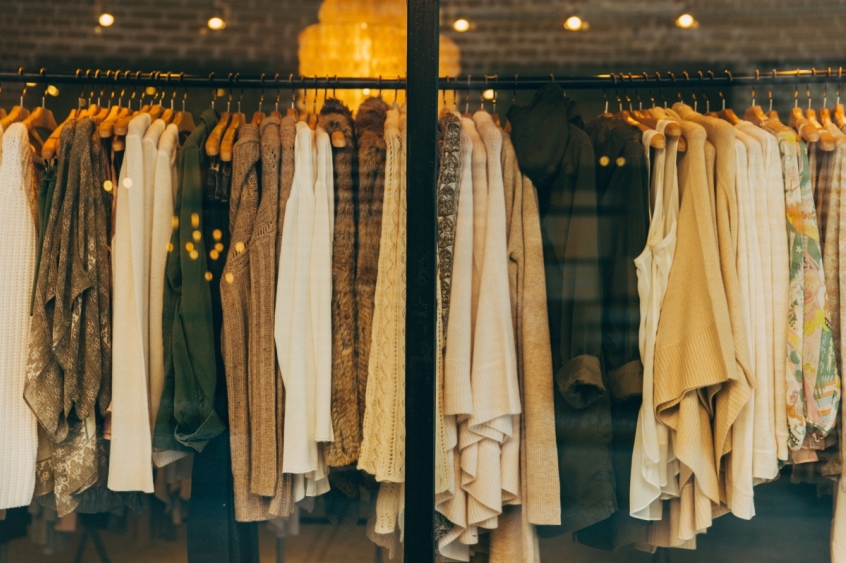
The scene is not an unusual one. Like so many British and American millennials, I began my consumer career with an infatuation for fast fashion. Even during my time at university I was a devotee. Though I never had a liberal shopping budget, I always managed to scrounge up enough change for a regular purchase at H&M, New Look or Topshop, even if it meant sacrificing a soya latte (or two). The price hardly mattered because an on-sale blouse cost £4.50. I reveled in my frugality and when complimented on a new wardrobe addition I often replied, 'Thanks, it was only £8!' Since high street clothes were inexpensive, I rarely gave thought to what I bought, and felt little remorse for never actually wearing my newest finds. The garments I pined after were low-cost and disposable, yet totally irresistible. Why? Because buying new clothes every week was fun.
It was also during my time at university that I learned about human trafficking through the 2011 Nefarious documentary. It shook me. Once I found out that an estimated 27 million people (now 45.8 million according to Global Slavery Index) were enslaved worldwide, I knew that I had to join the modern-day abolition movement. God's heart for emancipation was obvious to me. It was unproblematic: slavery is unjust and God wants us to join him in ending it.
Still buying fast fashion, I began volunteering for A21 Campaign and International Justice Mission (IJM) anti-slavery events. I organised prayer nights devoted to abolition. I blogged about God's heart for physical freedom and dreamt up plans for modern-day emancipation literature and campaigns. Yet, despite my growing passion for slavery's end, I did not perceive the misalignment between what I campaigned for, wrote on, and believed in – and what I wore.
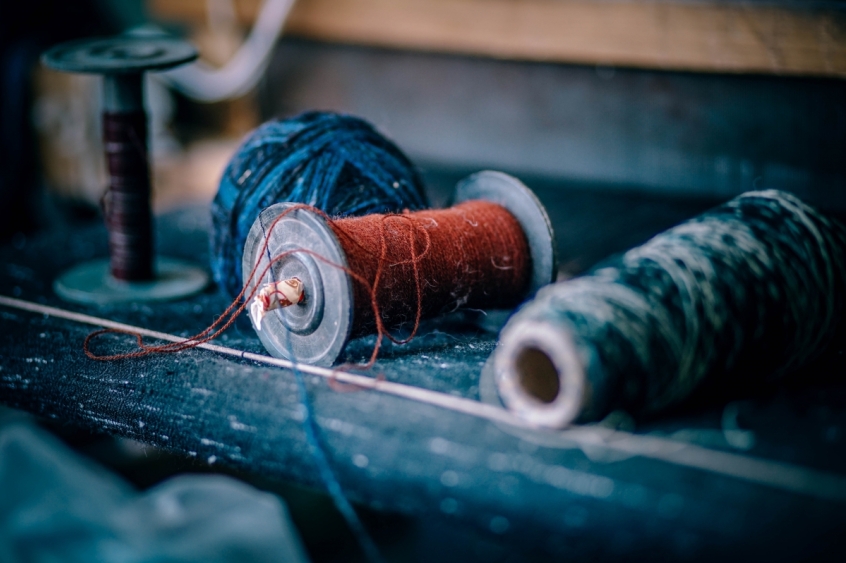
My perspective began to shift last summer when I picked up a copy of The Locust Effect: Why the End of Poverty Requires the End of Violence, written by IJM founder Gary Haugen. Expecting a treatise on slavery and brothel raids, I was surprised to find myself plunged in a wider argument about global poverty and its complexities. For me, it raised an ever-expanding host of questions. If exploitation occurs wherever there is vulnerability, and 2 billion people worldwide live in poverty, what systems are oppressing the global poor? Where is exploitation occurring, and how am I buying into it without even realising it? Who is benefiting from human capital on the cheap?
It finally clicked. This is where our clothes come from: exploitation of the poorest of the poor. Not long afterwards, I decided to do some digging on textile, leather, and hardware supply chains. This is what I found.
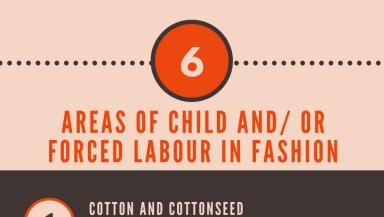
Forced and child labour
Forced and child labour occur in fashion supply chains throughout the globe, including but not limited to the following (based on data from the United States DOL). Coerced and child labour occur within western European fashion supply chains as well, particularly due to refugee migration to Europe, leaving millions of people vulnerable to exploitation due to lack of local language knowledge, financial resources, familial support, and documentation. In one paradigmatic 2016 case, The Guardian uncovered Syrian refugee children as young as 12 years old working as child labourers for garment producers in Istanbul at 60 hours a week for £138 a month.
Abuse and lack of safety measures
In 2013, Bangladesh's Rana Plaza factory – a supplier for many major UK and US brands – collapsed, resulting in the death of 1,134 garment workers. The collapse was due to lack of proper building maintenance, a problem typical of many fashion industry factories. Baptist World Aid notes that factory fires and unsafe working conditions persist worldwide, and Know the Chain reports that many factory managers hide undocumented and child workers when they are audited. Concealed code violations and subcontracted work are major problems facing garment workers worldwide, who also report suffering physical, verbal, and sexual abuse from factory supervisors.
Low Wages
Though the fashion industry is valued at approximately £2 trillion, many suppliers and producers are paid nothing or very little for their work (and/or held in debt bondage). The International Labour Organization reports: 'In 2015, an estimated 327 million employed people were living in extreme poverty (those living on less than US$1.90 a day) and 967 million in moderate or near poverty (between US$1.90 and US$5 a day).' Many of the employed poor work in textiles, garments, and cotton (commonly in the Asia Pacific region, which employs over 40 million garment and textile workers.)
Low wages mean the inability to provide for basic necessities, such as in Salaheya Khatun's story. Having experienced domestic violence, child marriage, and pregnancy at a young age, Khatun now works 72 hours a week in a Dhaka-based garment factory for approximately £67 a month – not nearly enough to provide for both her daughter's needs and her own.
Environmental destruction
From toxic wastewater and deforestation in leather production to genetically modified cotton and post-purchase waste, the fashion industry has a major environmental impact on a global level. In particular communities, the insidious changes wrought by these industries have caused long-term diseases and deformities—and our habit for throwing old clothes in the bin has contributed to 620,000 tonnes of residual textile waste in a given year (according to 2013-2014 statistics for England, Wales, and Northern Ireland).
The more I researched, the more I came to find that the same issues that grieved my heart for slavery also characterised the fashion industry. In fact, the only real difference between an enslaved labourer and an abused fashion industry worker was a technical one: fashion industry workers are paid, albeit a wage that is often too small to afford a daily meal. Though a garment worker may not be enslaved, socio-economic context (amongst many other factors) often coerces both adults and children to sell their labour in fields, factories, mines, and tanneries where physical violence, sexual abuse, inadequate pay, exposure to toxic chemicals, and lack of protective equipment are industry standard for millions worldwide.
Companies and consumers are often ignorant of these abuses—or apathetic about them. Yet while corporations ignore and deny human suffering, God does not. He knows it full well, and he deeply, intimately cares.
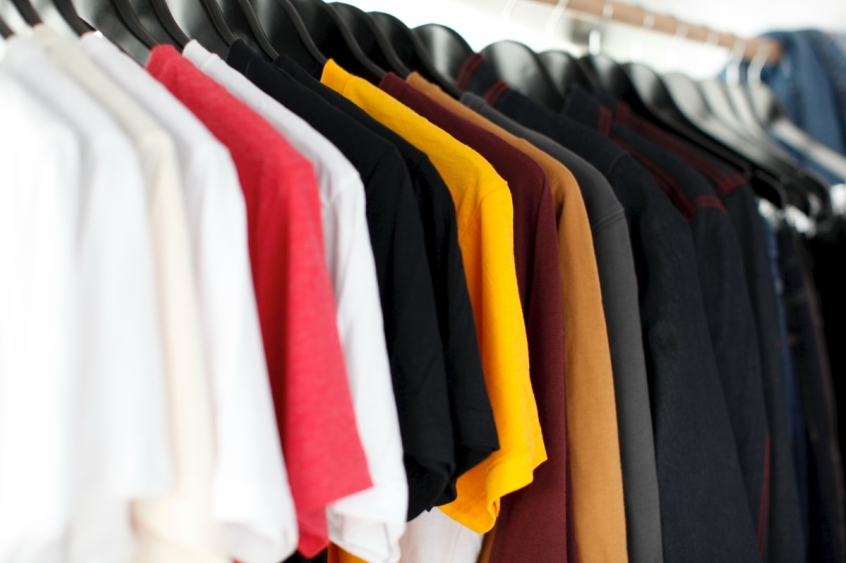
Jesus cares about fast fashion
As Christians, we serve a King who is profoundly attentive to the needs of people. Our God's heart is passionately invested in every single person and he longs for each of us to live in holistic freedom. Our God intervenes to defend the poor against those who exploit their vulnerability, as the writer of Proverbs says: 'Do not exploit the poor because they are poor and do not crush the needy in court, for the Lord will take up their case.' The Bible is not unclear: exploitation is wrong, and God will fight for the poor.
In Jeremiah and Isaiah, God's messengers speak to Israel about clothing specifically. Jeremiah declares to Israel, 'On your clothes is found the lifeblood of the innocent poor,' and Isaiah records God's judgment against Israel: 'You trade the poor for a pair of sandals.'
Though the context differs from our discussion today, at its core, how is our complicity any different from what God speaks against in Jeremiah and Isaiah? Today, human abuses are woven into the fibres of our clothes. When we score a 'fab deal' on an outfit, it often comes at great cost to another living person created in the Imago Dei – the image of God.
Indeed, it is not unlike trading a poor factory worker for a pair of £12 New Look sandals. Shima's story proves the point: after having been locked in a factory room, battered with punches, struck with chairs, slashed with scissors, and had her head thrown against the wall for making an attempt to unionise, the 23-year old Bangladeshi garment worker confessed in the True Cost documentary, 'People have no idea how hard these clothes are for us to make. I believe the clothes are produced by our blood.'
Jesus came to set captives free, to bring holistic restoration to the earth, and to communicate the heart of God toward all people – a heart that CS Lewis described as holding prodigious value for every person. How can we respond as followers of Jesus?
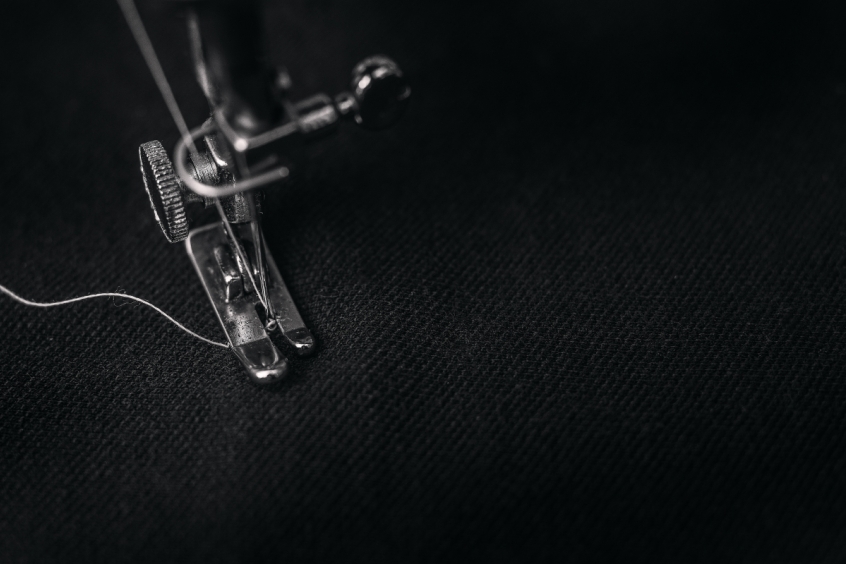
1. Do your research
Start with searching the brand's name on Project Just, a research collective that examines the social and environmental impact and transparency of the brand's production methods and supply chains. Companies that meet labour and environmental standards are awarded the #JUSTApproved label. When navigating a brand's website, read the 'About' and 'FAQ' sections for detail on transparency, production reports, sustainability initiatives, and certifications such as Fair Trade, Organic Cotton, or SA8000 standard. Read critically (beware of greenwashing!) and remember that both less expensive and haute couture brands are prone to unethical and unsustainable practices.
If a brand ranks poorly on Project Just, continuously appears in the news for labour abuses, and/or does not disclose production data on their website – stop supporting them. When it comes to accessories and apparel, you vote with your £££.
2. Shop secondhand
Ethical fashion can be exclusive due to its higher price tag, but everyone can make a difference by shopping secondhand. UK-based e-commerce consignment store Vinted allows consigners to sell their clothes online and connects shoppers to quality, pre-owned pieces from their favourite high street brands. Charity and vintage shops such as Oxfam and Beyond Retro are prime spots for finding unique pieces whilst also promoting the circular economy model. See Four Square's 15 Best Thrift and Vintage Stores in London list here.
3. Repair your threads and kicks
Clothing and accessories should not be disposable. When the inner lining on your jacket comes undone, take your jacket to a seamstress. When your boot's zipper detaches on its own accord, take the boot to a cobbler. When your shoes show scuffmarks, buy a shoe cleaning solution. Show your clothes a little love, and they'll last much longer – a win for the planet and for your wallet.
4. Talk to brands
Once a year, Fashion Revolution runs the 'Who Made My Clothes?' campaign, an initiative that spurs shoppers to ask brands about where their clothes came from. Follow the campaign here, and send an email, letter, or hashtag-notification to your favourite brands!
5. Support ethical brands and shops
The UK is home to many socially and environmentally conscious designers and shop owners. Clothing and accessory brands People Tree UK, Know the Origin, and Elvis and Kresse are each committed to challenging traditional methods in order to pioneer models that honour each resource and individual involved in a garment's production.
Brothers We Stand, The Acey, We Are Thought, Birdsong London, and The Keep Boutique (featured in the Guardian article, 'Why I Gave Up So Much to Open an Ethical Fashion Boutique') have curated socially and environmentally conscious pieces that are available on their e-commerce platforms and/or brick and mortar shops throughout the UK.
If you decide to purchase a garment first-hand, consider supporting an ethical brand or shop.
It's about God's kingdom
Shopping ethically is not only about God's heart for people—it is also about his glory and his coming kingdom. In Surprised by Hope, NT Wright reminds the Church:
'What you do in the present – by painting, preaching, singing, sewing, praying, teaching, building hospitals, digging wells, campaigning for justice, writing poems, caring for the needy, loving your neighbor as yourself – will last into God's future. These activities are not simply ways of making the present life a little less beastly, a little more bearable, until the day when we leave it behind altogether. They are part of what we may call building for God's kingdom.'
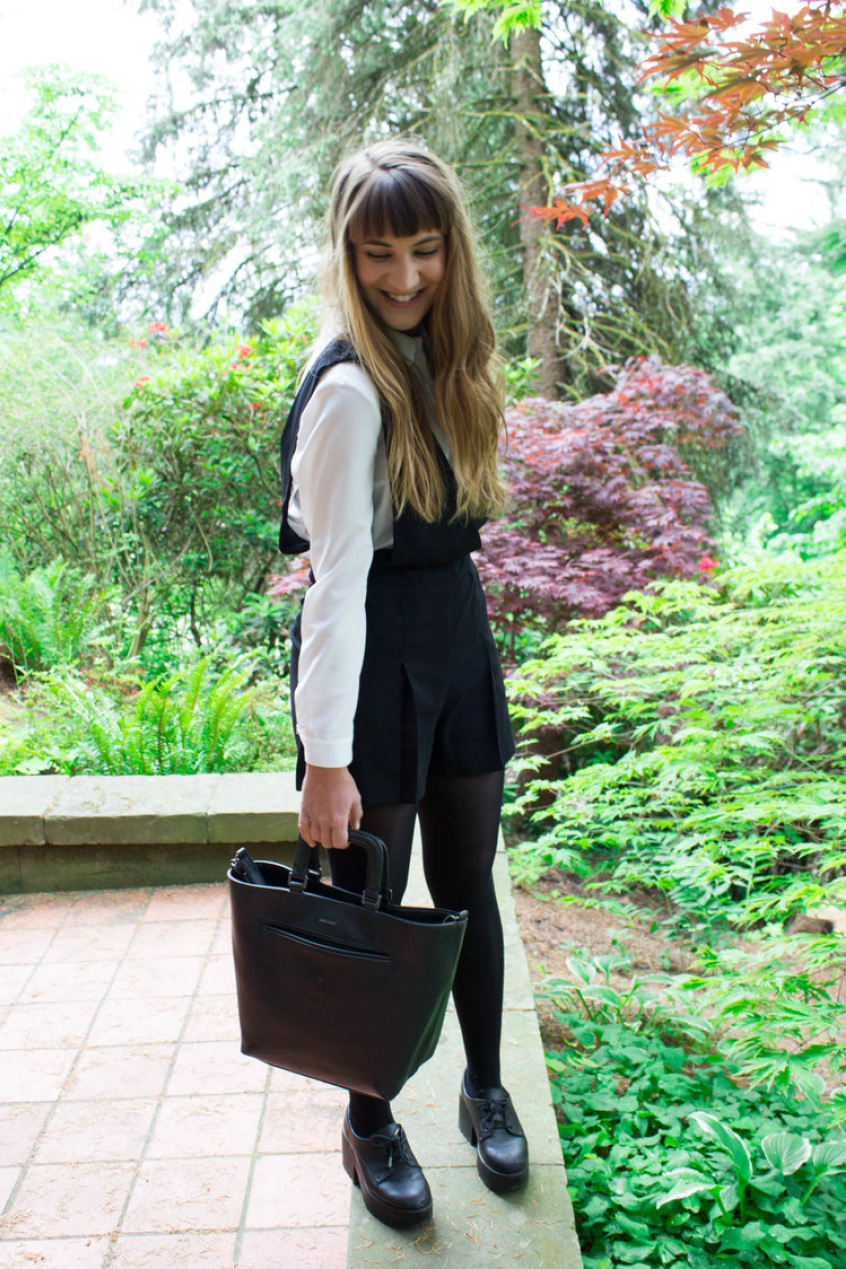
When God's kingdom comes fully on this earth, our clothes will not be made by means of slavery and exploitation, because God's kingdom is established in love for all people. As Christians today, we have a unique opportunity to give glory to God in what we buy and how we think about the things we wear. We buy, sell, and trade within a global economy – this is certain – but the question remains: how can we build God's kingdom and love our neighbours through fashion?
It's a question I hope the Church in the UK and beyond will begin to answer with action and hope.
Savannah DiMarco is a 24-year-old Jesus-follower, ethical fashion advocate, Greek literature nerd and vegan flat white lover. Visit her blog The Ethical Fashion Journey.













